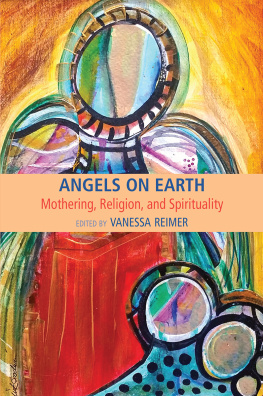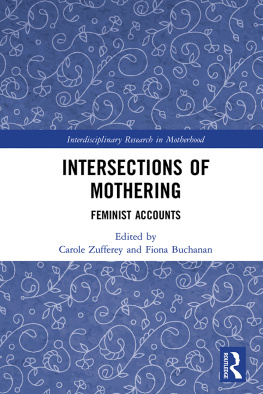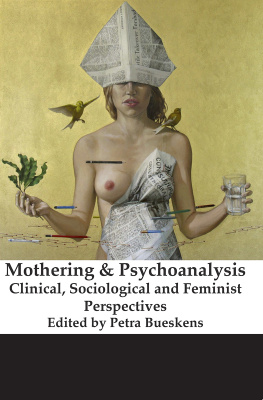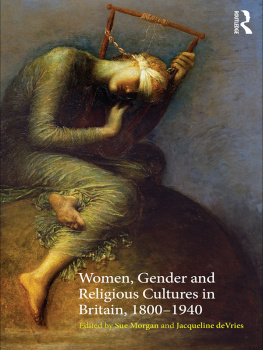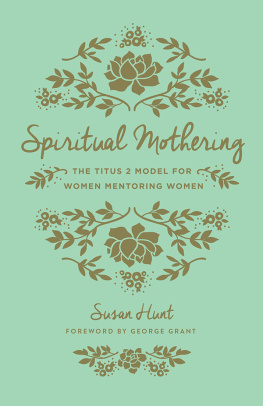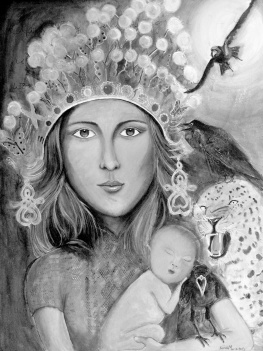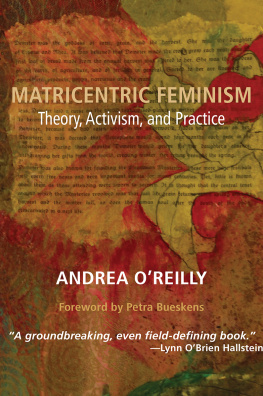Angels on Earth
Copyright 2016 Demeter Press
Individual copyright to their work is retained by the authors. All rights reserved. No part of this book may be reproduced or transmitted in any form by any means without permission in writing from the publisher.
Funded by the Government of Canada
Financ par la gouvernement du Canada

Demeter Press
140 Holland Street West
P. O. Box 13022
Bradford, ON L3Z 2Y5
Tel: (905) 775-9089
Email:
Website: www.demeterpress.org
Demeter Press logo based on the sculpture Demeter by Maria-Luise Bodirsky < www.keramik-atelier.bodirsky.de >
Printed and Bound in Canada
Front cover artwork: Ardith Goodwin, Guardian Angel, 2013, mixed media/collage, 8 x 10 inches. Artist website: http://ardithgoodwin.com .
eBook: tikaebooks.com
Library and Archives Canada Cataloguing in Publication
Angels on earth, mothering, religion and spirituality / edited by Vanessa Reimer.
Includes bibliographical references.
ISBN 978-1-77258-022-8 (paperback)
1. Motherhood -- Religious aspects. 2. Mothers -- Religious life. 3. Feminism -- Religious aspects. I. Reimer, Vanessa, 1986, author, editor
HQ759.A56 2016 306.8743 C2016-904647-8
Angels on Earth
Mothering, Religion and Spirituality
EDITED BY
Vanessa Reimer

DEMETER PRESS
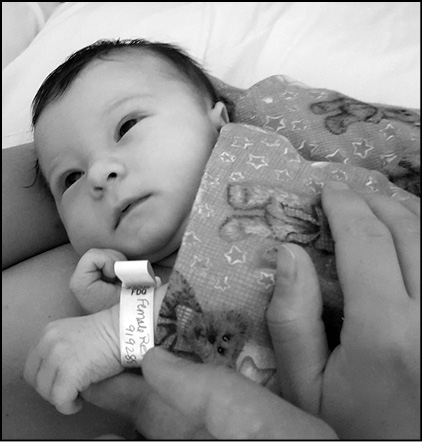
In loving memory of my daughter, Leah.
You will always be my angel.
Also dedicated to my mother.
Thank you for always offering your love, support,
and wisdom when I need it the most.
Table of Contents
Acknowledgements
I would like to begin by thanking Andrea OReilly and the entire team at Demeter Press for accepting my proposal for this book and supporting me throughout the editing process. Special thanks to the books reviewers, whose valuable time and insightful feedback helped improve the manuscript, as well as to Ardith Goodwin for allowing us to feature her beautiful painting, Guardian Angel, on the books cover. Finally, I must thank the contributors for their diligence and patience. It is my honour and privilege to include your work in this collection.
Introduction
Contextualizing Spiritual Mothering and Reclaiming Religious Motherwork
VANESSA REIMER
God gave us each an angel and her name is Mom.
In heaven they are angels. On earth they are mothers.
Mothers are Gods angels on earth.
W HETHER OR NOT we subscribe to a particular religious tradition or spiritual worldview, many of us are familiar with the above sentiments which extol mothers as celestial beings. Each year they grace the covers of Mothers Day cards, reminding children and adults alike to thank their mothers for the work that they do and the sacrifices they make. In many ways, these phrases highlight the pervasive disconnect between the romanticized lip service that we frequently pay to mothers and the patriarchal ideologies that devalue maternal practice, particularly when women do not emulate the white, slim, able-bodied, heteronormative, and middle-class maternal ideal (Ladd-Taylor and Umansky 2-3). In this sense, they also provide vivid reminders that feminist maternal scholars cannot overlook the crucial role that patriarchal religious traditions have playedand continue to playin shaping sex, gender, and family norms (Burstyn; Cott; DeConick; Gallagher).
Indeed, Protestant and Catholic Christian traditions have largely established the structure, meaning, and morality of family life for the great majority of people (Morgan 35) in Western cultures, as well as among those who have been subject to Anglo-European colonization, slavery, and imperialism. It is thus unsurprising that many feminist scholarsat least those in wealthy, minority world contexts wherein the bulk of feminist scholarship is produced, and wherein Christianity remains the dominant religious paradigmhave addressed religion with a critical voice. For instance, the pioneering maternal theorist Adrienne Rich directly names and problematizes the patriarchal institution of motherhood in her groundbreaking text, Of Woman Born (1976). In doing so, she aptly contextualizes oppressive gender hierarchies as operatives of Judeo-Christian patriarchy. Other feminist scholars have similarly addressed how patriarchal ethics are rooted in religious traditions. For example, Marina Warner examines how the contradictory expectations of Christian womanhood manifest in the iconography of the Virgin Mary in Alone of All Her Sex: The Myth and the Cult of the Virgin Mary (1976). Marys supernatural virgin pregnancy and birth allowed her to be at once sexually pure, yet also a mother. Warner argues that all women have subsequently been evaluatedand found wantingin light of this fundamental paradox that values them for their sexual and reproductive potentials, but regards them as deficient and impure once these potentials are used.
ANGELS ON EARTH?
In a historical context, the cultural propensity to laud mothers as earthly angels echoes the pervasive Victorian ideology that valorized white, economically privileged women and girls as pure and untainted angels in the house (Frost 3; Satter 30). This sentiment is encapsulated by what Barbara Welter calls the cult of true womanhood, wherein altruism, self-sacrifice, submissiveness, and domesticity are viewed as innate female virtues (48). Furthermore, during this period women were regarded as naturally religious (Hardesty 38), and Christian piety was believed to be so innate to girls and women that those who seemingly lacked this virtue were considered fallen angels or no woman at all (Welter 49).
To that end, by venerating mothers as angels on earth, it is implied that all women canand therefore should perform the virtues of piety, selflessness, humility, and servitude in perpetuity. As Paula Caplan astutely notes, this tendency to romanticize motherhood perpetuates the deeply embedded cultural practice of mother-blame (25). Indeed, if it is expected that mothers should constantly embody angelic virtues, it becomes easy to deem them failures when they deviate from these impossible expectations. This also leads to internalized mother-blame, wherein women learn to regard themselves as bad mothers when they fall short of perfection (Caplan 44-45). In other words, when mothers are lauded as supernaturally righteous beings, they are effectively denied their full and complex humanity , and are consequently judged for failing to achieve the unattainable standards that our patriarchal culture has prescribed for them.
OUTLINING THIS TEXTS GOALS: ADDRESSING RELIGIOUS MOTHERWORK FROM THE INSIDE
Although feminist scholars have duly critiqued the oppressive aspects of patriarchal religious traditions, the majority of these voices operate from a perspective that is outside religion and spirituality. Consequently, the bulk of such scholarship at best marginalizesand at worst completely disregardsthe importance of religion and spirituality in many womens lives. Angels on Earth seeks to contribute to the growing body of feminist motherhood scholarship by addressing how the intellectual, emotional, and physical work of mothering is informed by womens diverse religiosities and spiritualities. In doing so, it further unpacks how religious mothers work to negotiate and resist patriarchal ideologies that devalue their maternal practice, just as it elucidates the empowerment that they derive from their spiritual lives.

